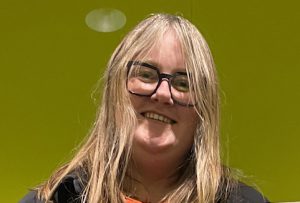Victoria Grimwood is a Pre-Doctoral Local Authority Fellow at the NIHR Policy Research Unit in Health and Social Care Workforce, King’s College London. (448 words)
Skills for Care, the strategic workforce development and planning body for adult social care in England, has undertaken to support key equality, diversity and inclusion priorities in the social care workforce. The organisation has been reaching out to those seeking equity change to ensure that the workforce is empowered to work alongside all those who draw on services in a person-centred way that focuses on what matters to them, and acknowledges their identities.
On 22 February, during LGBT+ History Month, Skills for Care hosted a well-attended virtual launch of its new learning framework for knowledge, skills and values for working affirmatively with LGBTQ+ people in later life.
The development of the framework was led by Professor Trish Hafford-Letchfield from the University of Strathclyde and Lawrence Roberts, the Pride in Ageing manager for the LGBT Foundation, a national charity delivering advice, support and information services to LGBT communities.
Professor Hafford-Letchfield began by setting out the evidence review involved in the development of the framework. She explained how the growing and diverse population of older LGBTQ+ people, live with a legacy of stigma, discrimination, and health inequalities over the life course, and continue to experience poorer wellbeing outcomes. Paul Martin from the LGBT foundation Pride in Ageing programme spoke about some of the barriers older LGBTQ+ people can face in relation to taking up care and support and provided examples of experiences of discrimination as well as areas of good practice that have developed.
Older LGBTQ+ people with lived experience of drawing on care and support were closely involved in coproducing the framework and had a clear message for the workforce: Develop a greater knowledge and understanding and treat all people with respect. Enable us to retain our dignity. Be aware of isolation, and of differences in our chosen families. Avoid making heteronormative assumptions. Communicate in open and inclusive ways that engender trust and then can lead to better assessments, support plans, and outcomes for us. Be kind.
The framework is multifaceted, versatile, and scalable. It can be adapted for use across the workforce and contains a wealth of evidence-based topics and resources which can be used to develop inclusive and affirmative assessments, care and support, set standards and support benchmarking and statutory compliance.
The developers emphasised that this framework is a jumping off point. They welcome feedback and hope to generate further work and research. It will be important to ensure authentic engagement with the framework, to further understanding of the intersections of LGBTQ+ ageing, and to explore the nuances of configuring local systems to support the intentions of personalised inclusivity. The framework was very well received, and delegates expressed excitement at the range of possibilities for local implementation.
Victoria Grimwood is a Pre-Doctoral Local Authority Fellow at the NIHR Policy Research Unit in Health and Social Care Workforce, King’s College London.
See also by Victoria:
What’s New? LGBTQ+ in Social Work Practice Education, Placements, and the Assessed Supported Year in Employment (2 April 2023)

Fantastic synopsis of a much-needed, timely and critical piece of work. Thank you Victoria!